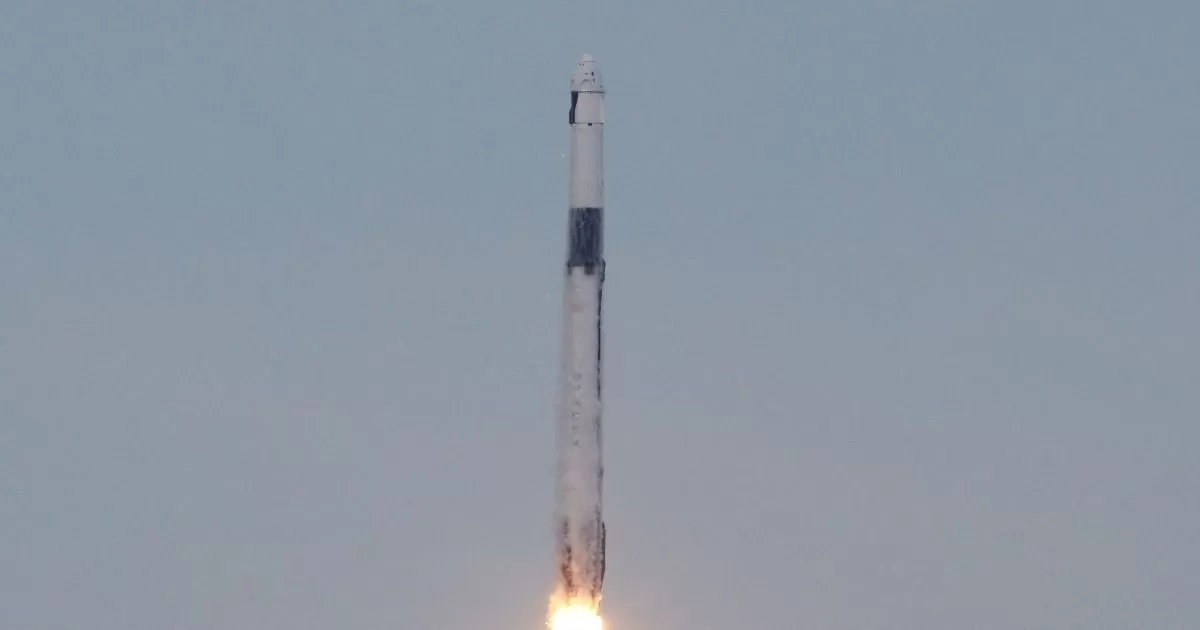CAPE CANAVERAL/NASA.- Another private company took off for the Moon on Thursday, a month after a competitor’s lunar module missed its trajectory and ended up returning before being destroyed.
NASA, the main promoter of the mission and which had experiments on board, hoped to land on the moon next week in an attempt to launch a lunar economy before carrying out manned missions.
SpaceX’s Falcon rocket lifted off in the dead of night from NASA’s Kennedy Space Center and sent the Intuitive Machines lunar module toward the satellite, 370,000 kilometers (230,000 miles) away. The craft looked like a six-pointed gem—each tip, a paw—as it successfully separated from the rocket and entered the darkness, leaving the blue Earth behind.
If all goes well, on February 22 it will attempt to land after a day in lunar orbit.
Only five countries—the United States, Russia, China, India and Japan—have managed to land on the Moon, and no private company has done so so far. The United States has not returned to the lunar surface since the Apollo program ended more than five decades ago.
“There have been many sleepless nights preparing for this,” Intuitive Machines co-founder and CEO Steve Altemus said before the flight.
The Houston-based company aims to put the 4-meter (14-foot), six-legged module about 300 km (186 miles) from the planet’s south pole, equivalent to landing on Earth’s Antarctica. That’s where NASA plans to take astronauts sometime this decade. The special agency said its six technological and navigation experiments on the probe can help pave the way.
NASA’s first foray into commercial transportation to the Moon—Astrobotic Technology’s Peregrine module—failed shortly after liftoff in early January.. A rupture in the fuel tank and a huge leak caused the ship to miss the Moon and re-enter the atmosphere 10 days after its launch, then dismantle and burn over the Pacific.
Other missions have reached the Moon before going awry.
A module owned by an Israeli nonprofit group crashed in 2019. A Tokyo company said its spacecraft had crashed into the moon, and then a Russian mission met the same fate.
Only the United States has sent astronauts to the Moon. Gene Cernan and Harrison Schmitt, crew members of Apollo 17, were the last of the program in December 1972. There were no more attempts until the Astrobotic project last month.
Intuitive Machines named its module after Homer’s hero in “The Odyssey.”
“Bless you, Odysseus. Now let’s make history,” said Trent Martin, vice president of space systems.
NASA pays Intuitive Machines $118 million to take its new round of experiments to the Moon. The company also gathered its own clients, such as Columbia Sportswear, which will test a metallic jacket fabric as a thermal insulator for the module, and sculptor Jeff Koons, who sent 125 miniatures of the Moon in a transparent cube.
The module also carries Embry-Riddle Aeronautical University’s Eaglecam, which will take images of the spacecraft during descent.
The ship will stop operating after a week on the surface.
Source: With information from AP




